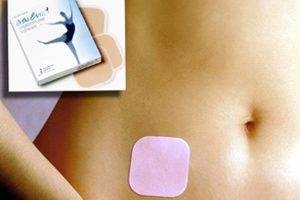
Lawsuits And FDA Warning May Avoid Contraceptive Patch. Countless college students get prescriptions for contraceptives, but with a string of lawsuits and new Food and Drug Administration warnings, they may avoid one popular form of birth control. The Associated Press reported this month that a young woman in Idaho has filed a lawsuit in federal courts […]

Lawsuits And FDA Warning May Avoid Contraceptive Patch. Countless college students get prescriptions for contraceptives, but with a string of lawsuits and new Food and Drug Administration warnings, they may avoid one popular form of birth control.
The Associated Press reported this month that a young woman in Idaho has filed a lawsuit in federal courts against the companies manufacturing the birth control patch Ortho Evra made by Ortho-McNeil, a subsidiary of Johnson & Johnson.
The woman began using the patch at age 17 in 2004, and after using the patch for only one month, she was diagnosed with a blood clot disorder that can sometimes be fatal. She now has to take daily anticlotting medications, preventing her from ever taking medications containing estrogen, such as birth-control pills or treatments for menopause and hormonal imbalances.
Hundreds of lawsuits over the patch have been filed nationwide stating similar side effects,
according to company officials
The patch works by releasing synthetic estrogen and progestin into the blood. It is applied on a weekly basis and has more hormones than other forms of birth control.
Diane Zanto, Director of Student Health, said she has never seen any student on campus with these threatening issues from using the patch.
The patch has small risk factors along with other birth control methods, she said, but with the patch, the absorption rates are higher. Similar to taking the pill, there are increased risks of cardiovascular problems, and users should watch for minimal chest pains, shortness of breath and mild headaches.
The Ortho Evra patch, introduced in 2001, is the only FDA approved skin birth control patch. Since its release, the FDA updated the warning label on the patch after two separate epidemiology studies were conducted to evaluate its risk of serious side effects.
The FDA added information to the Ortho Evra label in November 2005 regarding the risk of increased exposure to estrogen seen in women who use Ortho Evra compared with oral contraceptives. In September 2006, the FDA announced an update to the label, notifying consumers of increased risks of blood clothing in legs and lungs.
The first study found that the risks of non-fatal, but serious blood clots from using the patch are similar to those accompanying oral contraceptive pills. The second study conducted by another group, shows a nearly two-fold increase in the risk of blood clotting in Ortho Evra users compared to users of other methods such birth control pills.
UW-Oshkosh alumna, Jessica Stern experienced side effects after only four months of using the Ortho Evra patch. “I realized that something wasn’t right,” she said. “As time went on, I had noticed that I was getting very emotional no matter what I was doing.”
Even though Stern didn’t experience any life-threatening side effects, she said that after awhile she was getting bad headaches, experiencing dizziness and feeling tired all of the time.
After these occurrences, her doctor recommended she stop wearing the patch. Eventually, she felt like she was “back to normal,” but was afraid of using another form of birth control because, “I never wanted to go through that experience again,” she said.
As for the recent FDA warning updates of the patch, Stern said she’s not really worried about the life threatening side effects. “I have looked at some of the Web sites and the main issues they are having with the patch,” she said. “I don’t have any thing that was listed, and as of right now, I am healthy according to my doctor.”
The patch is still being recommended by health officials and seen as an effective use of birth control, except to women who smoke or are over the age of 35. According to the makers of the patch, side effects of the patch are not serious and those that are occur infrequently.
The personal injury attorneys at Parker Waichman LLP offer free, no-obligation case evaluations. For more information, fill out our online contact form or call 1-800-YOURLAWYER (1-800-968-7529).


